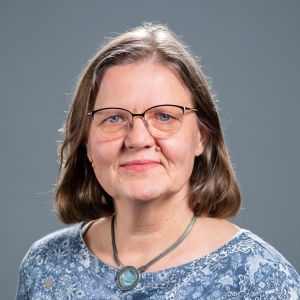Iris D. Tommelein
212 McLaughlin Hall
Regular office hours through 1 May 2026: TUE 15:40-17:00 and FRI 8:30-9:30.
To meet at a different time, please email me with proposed times to meet.

Iris D. Tommelein is the Roy W. Carlson Distinguished Professor in the Civil and Environmental Engineering Department at the University of California, Berkeley, where she also directs the Project Production Systems Laboratory (P2SL). She is known for her groundbreaking research in Lean Construction and for worldwide leadership in teaching and advancing state-of-the art construction engineering and management theory and practices.
Professor Tommelein has led numerous industry workshops, hosted conferences, and is actively engaged in consulting work pertaining to the development and application of principles and methods of project-based production management for the architecture-engineering-construction (AEC) industry, what is termed Lean Construction. She has published over 350 refereed articles, books, and book chapters, and has given many keynote lectures on her research.
Iris graduated as Civil Engineer-Architect from the Vrije Universiteit Brussel (VUB) in Belgium. She holds a MS in Construction Engineering and Management, an MS in Computer Science (Artificial Intelligence), and a PhD in Civil and Environmental Engineering from Stanford University.
Iris was a founder of the Lean Construction Institute (LCI) in 1997 and was recognized by the LCI with the Lean Pioneer Award in 2015. She was inducted into the National Academy of Construction (NAC) in 2019. She is the recipient of the prestigious 2022 PPI Technical Achievement Award, recognizing significant contributions and thought leadership in the area of Project Production Management. She received the 2024 Robert B. Harris Award (University of Michigan). She also received the 2024 Construction Management Award of the American Society of Civil Engineers (ASCE), an award established in 1973 and in 2024 for the first time awarded to a woman.
PUBLICATIONS, AWARDS, STUDENTS, AND TEACHING INFORMATION ARE POSTED HERE.
Ph.D., Civil Engineering (Construction Engineering and Management), Stanford University, 1989
M.S., Computer Science (Artificial Intelligence), Stanford University, 1989
M.S., Civil Engineering (Construction Engineering and Management), Stanford University, 1985
B.S. (5-year degree), Civil Engineer-Architect, Free University Brussels (Vrije Universiteit Brussel), Brussels, Belgium, 1984
Iris’ pioneering research in Lean Construction includes teaming up with owners, design specialists, general- and specialty contractors, suppliers, and other stakeholders in order to increase process- and product development performance.
Iris is an expert on site layout and logistics, operations and methods design, materials management, and supply-chain management. She is involved in developing digital twins and related decision-support systems, enabled by information technology systems that leverage sensor data, heuristic- and mathematical optimization as well as artificial intelligence (AI), and graphical and interactive user interfaces.
Her current research focuses on takt planning, modular offsite construction, and applications of Industry 4.0 technologies. Some of the research topics she is currently working on are:
Industrialized Construction - The scarcity of traditionally skilled construction labor, increasing project complexity, development of innovative materials and greater ambitions for more sustainable construction, and advances in construction digitalization and automation (in technical capabilities and affordability) are driving the industry towards increased industrialized and off-site construction. A change is needed in how projects are conceived, from design to manufacturing to assembly (Design for Manufacturing and Assembly aka. DfMA) to final delivery, operations, and maintenance (generally speaking, Design for X aka. DfX, with X to be filled in by you). Tommelein’s P2SL research group is investigating what industrialized construction (IC) entails, a company’s process for deciding to use IC, and assessment tools to evaluate the feasibility of using IC components and systems in construction projects.
Takt Planning - Takt serves as a work structuring method: using takt means introducing regularity in time-space to work planning. This regularity alleviates the need for crews to spend resources planning when they will work where, so that they have more time to focus on doing work. Tommelein’s research group is exploring how to determine what a takt time and associated work areas (zones) should be given a project’s scope of work, workload imbalances, and management considerations of alternative options.
Mistakeproofing Architecture-Engineering-Construction - “Mistakeproofing” is the use of any device or method that either makes it impossible for a mistake (error) to occur or makes the mistake immediately obvious once it has occurred. To eliminate the need for quality control, the practice of mistakeproofing sets out to prevent mistakes from occurring in the first place. Mistakeproofing is particularly well suited for the AEC industry with its low-volume and mixed production systems where statistical quality control methods cannot be implemented due to a lack of data and the untimeliness of findings that result from after-the-fact data processing. Tommelein’s P2SL research group studied the principles of mistakeproofing, and their study findings suggest that the principles of mistakeproofing offer practical and useful applications in the construction industry, with a positive improvement in quality performance, including safety- and health performance.
IDT 2024-04-11
Spotlights
No mentions in Spotlights


